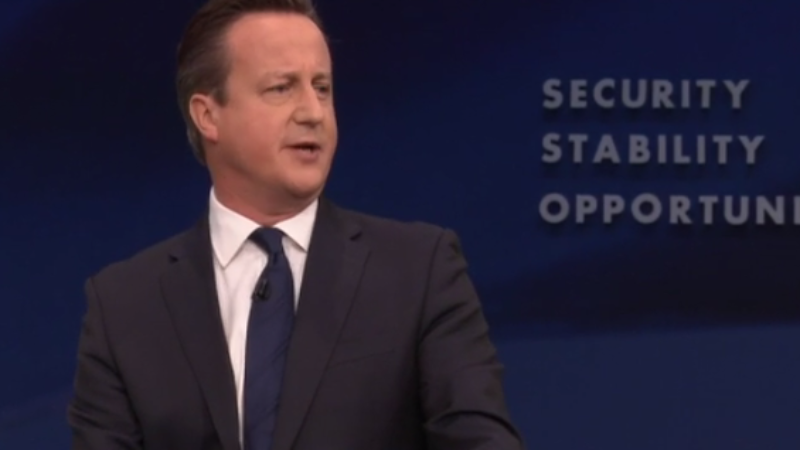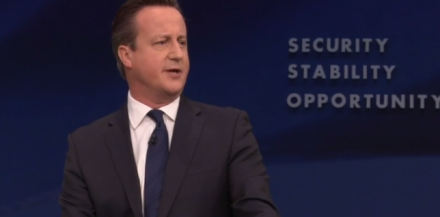

David Cameron is in a crisis of his own making. He promised a referendum on Britain’s membership of the EU and his government is delivering it next year.
But Cameron added a twist. He did not want this to be a vote on the UK’s existing relationship with Brussels. Instead, the Prime Minister made clear this would be a decision for or against the reforms that his government delivers. The referendum was always really about Cameron’s influence in Europe than Britain’s place in it.
After much delay, the government set out four simple EU reforms it would demand from Brussels: protecting the single market for Britain and other non-euro countries, boosting competitiveness by setting targets for reducing red tape, exempting Britain from ‘ever-closer union’ to bolster national parliaments and restricting in-work benefits like tax credits to EU migrants.
The rationale for this list is it can be delivered – but critics rightly point out these reforms as window dressing making little fundamental change to Britain’s relationship with the EU. It is doubtful that many will rally to the call ‘what do we want?- less red tape!’, ‘when do we want it? – in due course!’
Are such points worth making? Yes. Do they require any fundamental reform of existing treaties? Not at all.
This has heaped pressure on Cameron to deliver on restricting in-work benefits to EU migrants. This policy has strong popular appeal and would go some way to showing his government can yield fundamental EU reforms.
It did not take long for the Prime Minister to realise that having one rule for British citizens and another for all other EU nationals on benefits is more difficult than he first thought. This has faced stiff opposition from other European leaders with little to no ground to give.
The result leaves Cameron in a difficult position. He wants to show his government can deliver on very modest tweaks to Britain’s place in the EU, but a failure to make good on the most prominent of his four reforms may undermine his case opening the door for a Brexit that Cameron is keen to avoid.
The good news is there is a way out of this. But the bad news is how. Cameron wants to point the finger at Europe. He wins when it changes – Brussels is the problem that Britain must fix. It is certainly a popular view for many of his backbenchers.
In fact, the government can do something about restricting EU migration if it wanted to – and without forcing any EU treaty changes. But instead of blaming Europe, Cameron’s government should blame its own inaction to do what it can. Solving the problem may come uncomfortably too close to home for some at his top table.
The ‘free’ movement of EU nationals is not what it appears. EU migrants can be subject to border controls and even deported. Like all legal rights, there are specific conditions to be satisfied. There is also judicial precedent of EU nationals crossing borders expecting to be paid benefits from their new country of residence without contributing where these have been denied and the individual removed.
The problem for Cameron is not the lack of EU regulations on migration, but the failure of his government to enforce the rules already in place. Blaming others for your problem is easy, cheap and possibly effective until the facts become clear that with rights come responsibilities – namely those of the government – to police these rights.
Border control on the cheap might be good for freeing up funds for other important areas, but decisions taken here in Britain by a government that can act should not be masked by ministers unwilling to take responsibility where they can.
If Cameron wanted the EU referendum to really be a vote of confidence in his government’s ability to deliver his four point plan, he might get just that and risk a Brexit. The tragedy is it might all be avoided – not by cancelling the ballot – by refusing to act within his government’s existing powers whether for lack of knowledge or resolve.
Thom Brooks is Professor of Law and Government at Durham University, Visiting Fellow at Yale University and Communications Lead for Sedgefield MP Phil Wilson




More from LabourList
‘The hope that kills you’: Reflections from the final day in Gorton and Denton
MPs, union leaders and organisations react to ‘bruising’ Gorton and Denton result
A gory night for Labour